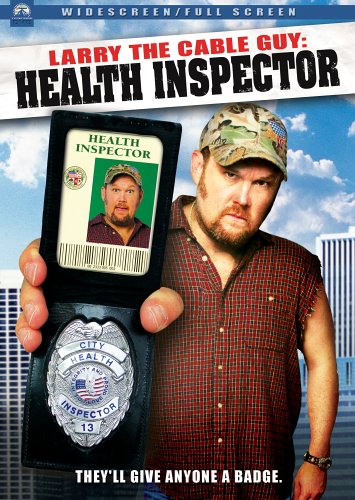London health inspectors are cracking down on restaurants with a flurry of fines and inspections one restaurateur says are the strictest he’s seen.
 Jonathan Sher of the London Free Press reports that inspectors have slapped 30 tickets on 13 eateries since a series of Free Press articles in February and early-March uncovered stomach-turning practices in some commercial kitchens that persisted thanks to inspectors who were too lenient and a system of oversight that was inconsistent.
Jonathan Sher of the London Free Press reports that inspectors have slapped 30 tickets on 13 eateries since a series of Free Press articles in February and early-March uncovered stomach-turning practices in some commercial kitchens that persisted thanks to inspectors who were too lenient and a system of oversight that was inconsistent.
In the 14 months before the series, only nine places were fined.
Jim Reffle, the director of environmental health at the London Middlesex Health Unit.
“Our staff are working in a different environment.”
In February, The Free Press and a new health unit website gave Londoners a window into the work of inspectors.
Such disclosure leads to greater vigilance, Reffle said, but health officials also have chosen to give eateries fewer chances for repeat infractions.
.jpg) A boost in enforcement is noticeable after cities start to disclose inspection results, said Douglas Powell, associate professor of food safety at Kansas State University. “More citations seem to be issued.”
A boost in enforcement is noticeable after cities start to disclose inspection results, said Douglas Powell, associate professor of food safety at Kansas State University. “More citations seem to be issued.”
That’s a good thing, he said, a view shared by Don Mercer, president of the Consumer Council of Canada.
The one thing that concerns him is the health unit website doesn’t specifically say a place was “closed” — instead it’s noted that a “Section 13” was ordered, which refers to closing an eatery.
“They should clean up the website and say places were closed,” Mercer said.
Reffle agrees and says he’ll do so. He’s also trying to make it easy for diners to get a list of all places closed or ticketed with a click of a button — for now Londoners have to scroll though thousands of food places one by one.
On Monday, city council will decide whether to adopt a bylaw that would empower inspectors to require food places to post signs for inspection results.

 Figures also show a nearly 40 per cent increase in the number of restaurants, bars and grocery stores closed for food violations — ranging from thawing meat to mouse droppings in the kitchen — during the same period.
Figures also show a nearly 40 per cent increase in the number of restaurants, bars and grocery stores closed for food violations — ranging from thawing meat to mouse droppings in the kitchen — during the same period.